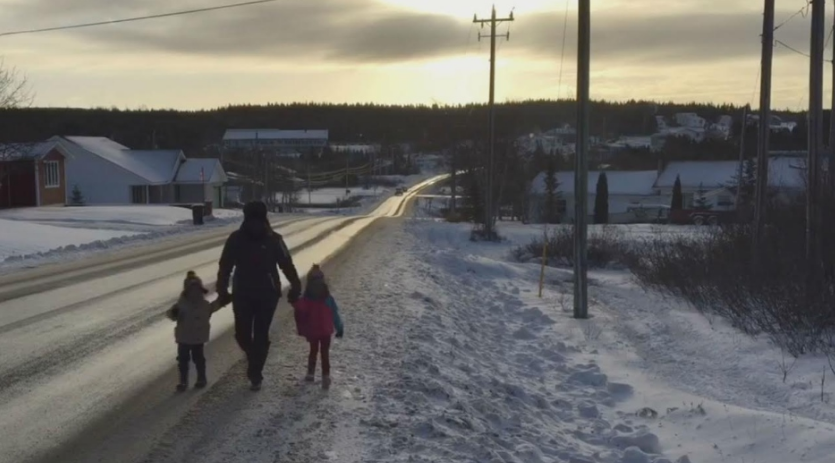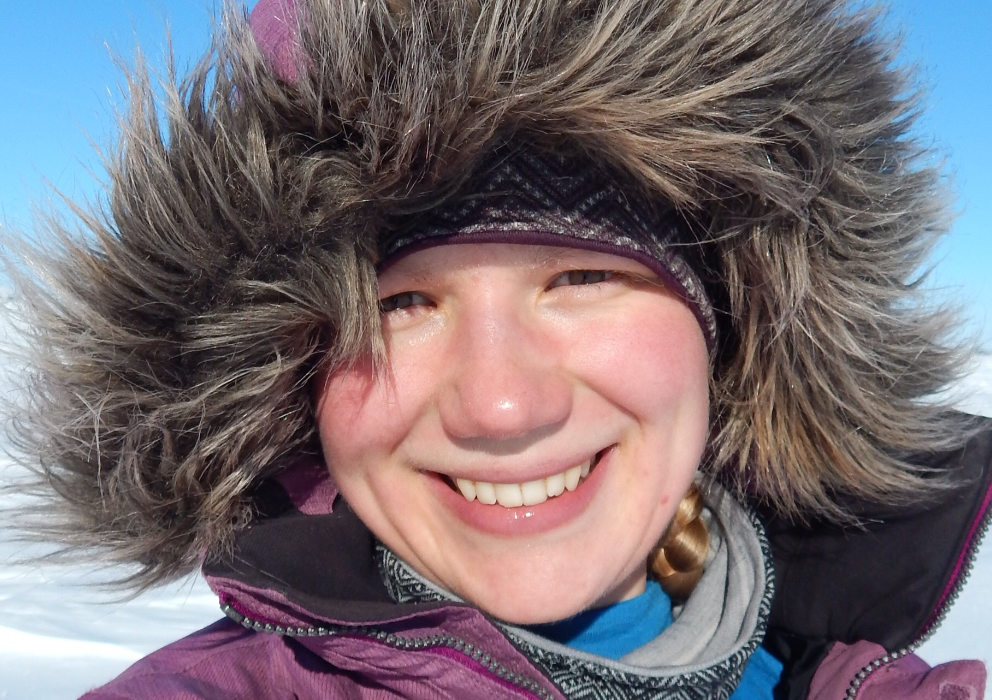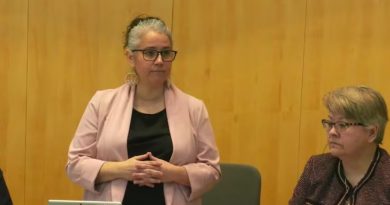Mental Health in Canada’s North: ‘We need to recognize resilience too’

May 1-7 is Mental Health Week across Canada.
It’s an annual event organized by the Canadian Mental Health Association to help decrease the stigma around mental health and raise awareness about the hurdles people face when trying to get help.
But for many northerners in Canada’s remote Arctic communities, the obstacles to receiving mental health services are multiplied by their isolation and things like the lack of culturally appropriate counselling.
As part of Eye on the Arctic’s coverage of Mental Health Week, we’re checking in with communities in different parts of northern Canada to find out what’s working, what isn’t, and what the rest of country needs to know about the challenges faced by northerners.
In our last instalment, we looked at a counselling service in Baker Lake, Nunavut in our documentary report Can community programs in Arctic Canada make the difference?
In today’s instalment, we speak with Kaila de Boer, the director of Mental Wellness and Healing in the Department of Health and Social Development in the Inuit self-governing region of Nunatsiavut in the Atlantic Canadian province of Newfoundland and Labrador.

Eye on the Arctic: What are the biggest challenges for Inuit accessing mental health services in Newfoundland and Labrador?
Kaila de Boer: What we speak about over and over again are how social determinants of health, and Inuit health, are such underlying aspects to understanding mental health in the region, as well as understanding access to services.
Canada’s national Inuit organization, Inuit Tapiriit Kanatami, speaks about the social determinants of health including livelihood, income distribution, housing, personal safety and security, education, food security, environment, culture and language, and of course mental wellness.
It’s really important to understand that, in order to understand both the challenges in mental wellness, and more broadly the challenges in accessing mental health services.
Our international listeners may find it hard to understand how housing and food security could be issues in a place like Canada.
In the community I’m in now (Nain), 71 per cent of the population falls within the bottom half of the Canadian after-tax income distribution. People are already starting at a disadvantage. Housing costs are astronomically high in northern regions. Forty-nine per cent of the homes in our region contain more than one family unit and at least 24 per cent of the homes are overcrowded with insufficient bedrooms and space for the number of people living within it. Three out of four homes in the region are in need of major or minor repairs.
People are often living in stressful and overcrowded situations which has a pretty serious impact on mental wellness.
Any examples of community-based programs or initiatives in Nunatsiavut that are showing promise?
The federal government had committed money around housing in the last budget and we have a few different routes looking at doing that. One is doing some repairs in homes. We’re also looking at establishing six-plex units that will provide housing. There’s been conversation around housing for elders and housing for vulnerable families.
We’ve also established, with funding from the province, a supportive living program, based on the housing first model. They’re usually staffed by one person who’s living there and provides support. It’s designed for people with multiple and/or complex needs. And with that support we’ve really seen people do much better. There’s fewer emergency room visits around mental health concerns and a decrease in crime and criminality. People are getting more stable and ongoing psychiatric care. People are starting to return back to school or jobs.
This week is Mental Health Week across the country, what would be the one thing you want people living in southern Canada to be aware of, or think about, when it comes to mental wellness in the North?
So much of it comes back to addressing social determinants of health, addressing historical trauma, the impacts of colonialism, residential schools and relocation and addressing the intergenerational impacts that has on people as they go forward in their lives. Historical trauma continues in different forms. That healing takes a lot of time and needs to happen in a context addressing poor determinants of health.
I think one point we really need to stress, that’s often overlooked when we talk about these (mental health) concerns, is really recognizing resilience and strength, whether in our northern indigenous communities or anywhere across Canada or internationally.
My recognition is that much looking into the night sky where it can look pitch black, if you look long enough, it’s so filled with stars.
The above interview has been edited and condensed.
Listen here for more from Eye on the Arctic‘s conversation with Kaila de Boer:
Write to Eilís Quinn at eilis.quinn(at)cbc.ca
Related stories from around the North:
Canada: Mental health in Canada – Can community programs in Arctic Canada make the difference? (VIDEO) , Eye on the Arctic
Finland: OECD ‘concerned’ over high suicide rates in Finland, YLE News
Russia: Why high suicide rates in Arctic Russia?, Blog by Deutsche Welle’s Iceblogger
Sweden: Gender stereotypes behind high suicide rate, Radio Sweden
United States: Confronting suicide in Alaska, Alaska Dispatch News



